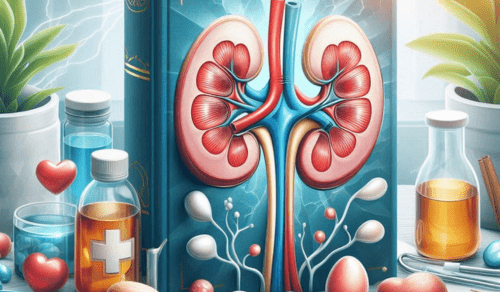Kidney stones are a painful and common condition that affects millions of people worldwide. These hard mineral and salt deposits form within the kidneys and can cause severe discomfort. Understanding the Robotic Surgery In Bangalore and knowing how to prevent them can save you from recurring pain and health complications. Here’s a guide to effective kidney stone treatment options, including lifestyle changes, dietary adjustments, and medical procedures.
What Are Kidney Stones?
Kidney stones are hard deposits made of minerals and salts, primarily calcium and oxalate, that form in your kidneys. They develop when your urine becomes concentrated, allowing minerals to crystallize and stick together. While small stones may pass unnoticed, larger stones can block urine flow, causing intense pain in the lower back, side, and abdomen.
Symptoms of Kidney Stones
If you experience any of the following symptoms, it’s essential to consult a healthcare provider:
- Severe pain in the lower back, side, or abdomen
- Painful urination
- Blood in urine (hematuria)
- Nausea and vomiting
- Frequent urge to urinate
- Cloudy or foul-smelling urine
The pain associated with kidney stones can be intermittent, and its intensity may vary as the stone moves through the urinary tract.
Types of Kidney Stones
- Calcium Stones: The most common type, often made from calcium oxalate.
- Uric Acid Stones: Often caused by a high-protein diet or dehydration.
- Struvite Stones: Typically occur due to urinary tract infections.
- Cystine Stones: Rare stones that occur in people with a hereditary disorder that causes the kidneys to excrete too much cystine.
Kidney Stone Treatment Options
The best treatment for kidney stones varies based on the type, size, and location of the stone, as well as the symptoms experienced. Here are the primary options available:
1. Hydration and Pain Management
For smaller kidney stones, drinking plenty of water—at least 2-3 liters a day—can help flush out the stone naturally. Over-the-counter pain relievers like ibuprofen or acetaminophen can help ease discomfort. In some cases, a doctor may prescribe stronger pain relief medications.
2. Medication
Certain medications can aid in dissolving or passing kidney stones more easily. Alpha-blockers, such as tamsulosin, help relax the muscles in the ureter, making it easier for the stone to pass. Additionally, potassium citrate can help dissolve stones formed by uric acid or calcium.
3. Extracorporeal Shock Wave Lithotripsy (ESWL)
For medium-sized stones, ESWL is a non-invasive procedure that uses shock waves to break up kidney stones into smaller pieces, making them easier to pass. The procedure may cause mild discomfort, but it’s generally well-tolerated and effective for stones in the kidneys or upper ureter.
4. Ureteroscopy
In cases where the stone is too large or painful to pass naturally, a ureteroscopy may be recommended. During this procedure, a thin tube with a camera (ureteroscope) is inserted through the urinary tract to locate the stone. The doctor may use a laser to break it into smaller pieces or remove it entirely.
5. Percutaneous Nephrolithotomy (PCNL)
For very large or complex stones, PCNL is a surgical procedure in which a small incision is made in the back, and a nephroscope is used to remove the stone. While this option requires a short hospital stay, it is often necessary for large stones that cannot be treated with other methods.
6. Dietary Changes and Prevention
A key aspect of preventing future kidney stones involves dietary adjustments. Here are some recommendations:
- Increase Water Intake: Aim for 8-10 glasses of water daily to prevent stone formation.
- Limit Sodium: High salt intake can increase calcium in your urine, leading to stone formation.
- Eat a Balanced Diet: Limit foods high in oxalates (like spinach, nuts, and chocolate), and reduce red meat intake if you have a history of uric acid stones.
- Include Citrate-Rich Foods: Citrus fruits like lemons and oranges contain citrate, which helps prevent stone formation by binding to calcium in urine.
When to See a Doctor
If you suspect a kidney stone and experience severe pain, difficulty urinating, blood in urine, or signs of infection (fever, chills), seek medical attention immediately. Untreated kidney stones can lead to infections, kidney damage, and recurring episodes.
Final Thoughts on Kidney Stone Treatment
Kidney stones can be extremely painful, but effective treatments are available. Early intervention, dietary changes, and staying hydrated are key in managing and preventing stones. Speak with a healthcare provider to determine the best Best Urologist in Bangalore based on your symptoms and stone type. With proper care, you can reduce the risk of future stones and maintain a healthy urinary system.

